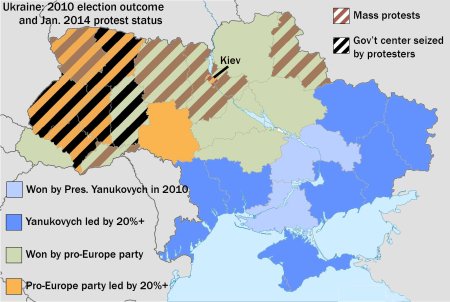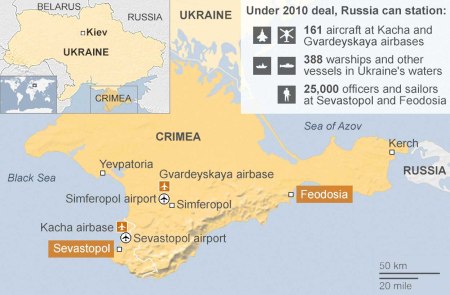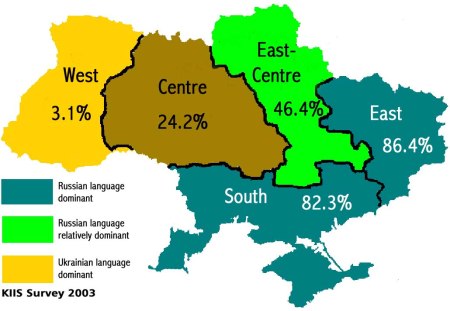The Situation in the Ukraine is murky and there are claims and counterclaims. It is fascinating how perfectly “gleichgeschaltet” Western media outlets are. Every newspaper, every TV channel offers the same news, the same background analysis, and the same opinion pieces, with only a few words different here and there.
While Reuters and Associated Press are the main relay stations to channel the (mis)information stream, Washington Post, Wall Street Journal, and New York Times are entrusted with the creation of a coherent narrative to prepare the public for upcoming decisions of Western political and military leaders.
Mainstream media, including the so called “progressive” or “alternative” media, anonymously disseminate good old propaganda, Eastern media, dissident media, and the blogosphere try to present a contrasting narrative with often unchecked, unserious, or even outlandish claims, conspiracy theories, and premature assumption. Though this is well meant it makes it difficult to distinguish between agitprop and factual reporting.
Here are a few news bits that one will not find in Western media because they contradict the official Western narrative. They are presented as they came in and should therefore be taken with a grain of salt. It will be interesting to watch the here presented informations being confirmed or disproved by future developments.
Revelations about the coup preparations
Vitaly Klischko and his UDAR party are the big losers in the power grab after the coup and he is completely sidelined. But Klischko is not as honorable and innocent at it appears. Intercepted emails between him and the Lithuanian Presidential advisor Laurynas Jonavicius clearly show the conspirative nature of the Maidan movement. Following is the text of two of the emails:
2.14.13
I am very grateful to the President and all Lithuanian friends for such strong support. I will do everything possible to meet the expectations of my European partners.
Your colleague has arrived and started working with my team. He’s a real pro and I think his services may be required even after the country is destabilized.
I’ve also met your people from the Embassy. The information about Yanukovych’s plans they handed me is very important for our common cause. I would like to receive this kind of information on a permanent basis.
Sincerely yours,
Vitali
I am very grateful to the President and all Lithuanian friends for such strong support. I will do everything possible to meet the expectations of my European partners.
Your colleague has arrived and started working with my team. He’s a real pro and I think his services may be required even after the country is destabilized.
I’ve also met your people from the Embassy. The information about Yanukovych’s plans they handed me is very important for our common cause. I would like to receive this kind of information on a permanent basis.
Sincerely yours,
Vitali
01.09.14
I think we’ve paved the way for more radical escalation of the situation. Isn’t it time to proceed with more decisive actions?
I also want you to consider the possibility of increasing funding to pay for the services of our supporters.
Sincerely,
Vitali
I think we’ve paved the way for more radical escalation of the situation. Isn’t it time to proceed with more decisive actions?
I also want you to consider the possibility of increasing funding to pay for the services of our supporters.
Sincerely,
Vitali
Open questions about the Sniper killings
As reported before, on February 20, just as then still President Viktor Yanukovych met with a high level EU delegation, 21 protesters were killed by professional snipers. It was not a spontaneous event resulting from clashes between protesters and riot police, nor was it the result of gunfire between the police and the Neo-Nazi storm-troopers. The victims were shot in the head, the neck or the heart. None were shot anywhere else like in the legs.
Colonel Sergei Asavelyuk, head of the Office of Coordination of special-purpose combat, said that a “third party” shot at people during the Maidan protests and that shots were fired from the roof of the hotel Ukraine and from two other buildings. “We did not shoot because there was strong smoke. We were just watching.”
The commander of special purpose “Omega” interior troops Anatoly Strelchenko said: “We have killed no one …. We were only allowed to shoot at activists who used weapons. And we were only allowed to shoot on their limbs.”
Former chief of intelligence Alexander Skipalsky also told in an interview that on Independence Square a “third force” was trying to provoke both sides.
Before the coup, Ukraine authorities accused NATO agents of killing protesters during the disturbances in Kiev. Member of Parliament Evgeniy Balitskiy: “This operation was thoroughly planned by professionals disguised in civilian clothes.”
There are several YouTube videos showing masked snipers with no uniform.
The gunmen didn’t only target protesters. 16 police officers were killed and another 130 were hospitalized with gunshot wounds.
Operation Gladio comes to mind.
A possible NATO intervention
The new rulers in Kiev have appealed to NATO “to consider all options to defend the territorial integrity and sovereignty of Ukraine.” Ukrainian Member of Parliament Oleg Tsarev claimed that there may be already up to 1,000 NATO troops in Western Ukraine. They were deployed to take part in a NATO exercise that was planned for March 2014.
Additional NATO troops have landed in the Lviv region (hotbed of the Pravy Sektor), according to Moskovsky Komsomolets.
Retired Admiral James Stavridis demanded in an article that NATO immediately increases “all intelligence-gathering functions through satellite, Predator unmanned vehicles, and especially cyber-tools” and transfers “NATO maritime forces into the Black Sea, setting up contingency plans for their use.”
Two American warships, the missile destroyer USS Ramage (DDG-61) and the flagship of the US Sixth Fleet Mount Whitney, are in the Black Sea and move towards Crimea.
The NATO Council, which includes the ambassadors of all 28 Allies, is meeting following a request by Poland under article 4 of NATO’s Treaty. Under article 4 an ally can request consultations when its territorial integrity, political independence, or security is threatened.
Crimea goes to Russia
RIA Novosti reports, that most Ukrainian servicemen stationed in Crimea are leaving their military units and are handing over weaponry and arsenals to local pro-Russia authorities and militia.
Ukraine’s flagship, the Hetman Sahaidachny frigate, has reportedly refused to follow orders from Kiev and switched to Russia’s side, it is returning home after taking part in NATO operation in the Gulf of Aden flying the Russian naval flag. The ship captain and the head of Ukraine’s contingent in the operation, Rear Admiral Andrey Tarasov disobeys orders from Kiev.
According to the Kiev Times, Arseniy Yatsenyuk, the new Prime Minister of Ukraine has asked his Turkish counterpart Recep Tayyip Erdogan not to let the frigate through the Bosporus strait.
Rear Admiral Denys Berezovsky, who was just one days before appointed as the new head of Ukraine’s navy, has sworn allegiance to the Crimea region in the presence of Crimea’s pro-Russian Prime Minister Sergei Aksenov. Ukraine’s interim leaders have put him under investigation for treason.
The head of the Security Service of Crimea Petyor Zima, the Chief of Department of Internal Affairs in the Crimea Sergey Abisov, the head of Service for Emergency Situations Sergei Shakhov, and acting Chief of the Border Guards of Crimea Victor Melnichenko also switched sides.
Crimean Prime Minister Aksyonov announced he has given orders to Ukrainian naval forces on the peninsula to disregard any commands from the “self-proclaimed” authorities in Kiev.
Ukraine’s acting president Oleksandr Turchynov has ordered a full mobilization of Ukraine’s armed forces, but the leadership of the Ukrainian military is in disarray as two chiefs of staff have been appointed and subsequently fired since February 19.
Where will the Eastern Ukraine go?
Thousands of pro-Russia protesters have staged rallies in eastern Ukraine to support the Crimean population and they are calling for Russia to defend them as well. Protesters across eastern and southern Ukraine are flooding the streets of major cities, urging local authorities to disobey orders of the new rulers.
In Kharkov, the largest city in eastern Ukraine, pro-Russian protesters managed to break through a cordon of Maidan supporters, capturing the government building. The storming was accompanied by clashes and shooting, 111 people have been injured.
Activists from the Pravy Sektor, who were inside the building, “were throwing explosives …They also opened fire at protesters,” Kharkov Mayor Gennady Kernes told journalists. showing a cartridge for an AK40 assault-rifle which was found inside the building. According to the mayor, “120 Molotow cocktail bombs, two mines and drugs” were discovered at the site.
The Donetsk City Council held an extraordinary session and approved a notion of holding a referendum on the future fate of the Donetsk region. The council also supported the creation of municipal militia squads to protect citizens from possible aggression by radical nationalists, reported Itar-Tass. Additionally, the authorities decided to introduce Russian as a second official language in the region.
In the last two month about 670,000 Ukrainians left for Russia because of anticipated reprisals, Russia’s Federal Border Guard Service said. 7.6 millions of the 45 million Ukrainians are ethnic Russians.
The Verkhovna Rada (Ukrainian Parliament) approved measures, which restricted the rights of ethnic minorities (especially the right to use Russian as second official language), dismissed judges of the Constitutional Court, and demanded criminal proceedings be instituted against them. Most parliamentarians of the Party of Regions were intimidated and threatened by the neo-Nazi mob, many have fled to Russia, some switched sides. The ones which didn’t switch sides don’t dare to show up, therefore a majority for any legislation submitted by the new rulers is guaranteed.
In Moscow the Federation Council’s International Affairs Committee has passed a draft appeal urging Russian President Vladimir Putin to recall the Russian Ambassador to the USA.
Shattered finances and no solution
Foreign currency reserves in the Ukraine dropped from 17.8 billion US$ to 15 billion in February. Despite Ukrainian banks limiting cash withdrawals from ATMs, customers withdrew around 3 billion US$ just during the Maidan street battles, an amount equivalent to 7 percent of all deposits.
An estimated 70 billion US$ were taken out of the country in the last three years. The new rulers have predicted their financial requirements for the next two years at 35 billion US$.
European banks have more than 23 billion US$ in outstanding loans in Ukraine, Russia holds 28 billion US$ open loans. The total external debt of the Ukraine is about 140 billion US$. The non-state sector of Ukraine’s economy can default at any time and mass bankruptcies of Ukrainian banks and companies are expected.
Ukraine’s exports to Russia are 16 billion US$, if the Russian export market is cut off, it would diminish Ukraine’s GDP by 20 percent.
The new rulers have asked the International Monetary Fund for a 15 billion US$ loan.
It would not be the first big bailout. At the height of the global financial crisis in 2008, the IMF extended a nearly 17 billion US$ loan to Ukraine on the condition that it would work toward balancing its budgets. The IMF froze the payments a year later after President Yanukovych increased wages and pension benefits for workers during an election campaign, violating the balanced budget pledge attached to the loan.
During the twenty years of cooperation with the IMF Ukraine has paid 2, 29 billion US$ in interest rates payments. Interest payments are equal to 12.1 percent of the credits granted, letting the IMF look like an ordinary loan shark.
At present it doesn’t seem that the IMF want’t to give more money to a country that is likely to default, but rather will try to wring out as much of the outstanding loans as possible.
If the IMF against all odds would lend new money the list of conditions would be the same as always: Cutting government expenditure (reducing salaries and pensions, firing public sector workers, cutting spending of individual state institutions), ending public subsidies and subsidies to industry, removing tax benefits, and ending subsidies to loss-making government enterprises.
Whatever happens, the Ukraine will find itself facing the same economic hardship that has driven far more stable places like for instance Greece, Spain, Portugal, Latvia, and Ireland, to the brink of civil unrest and social collapse.
The Weimar Republic comes to mind.



Keine Kommentare:
Kommentar veröffentlichen